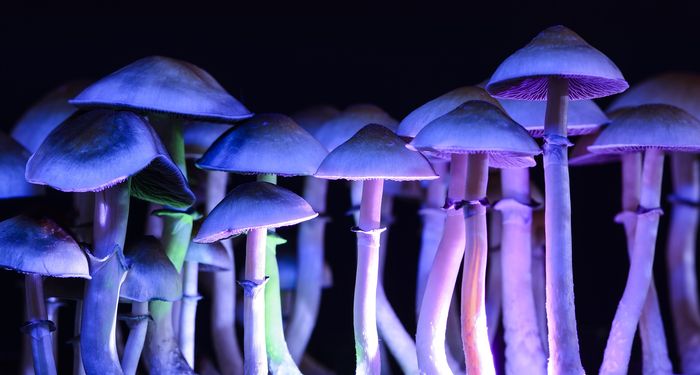Promising Research on Psilocybin

New research on psilocybin shows that it can help heavy drinkers cut back on alcohol. Psilocybin occurs in several species of mushrooms, which are known informally as ‘magic mushrooms.’ They cause people to experience strong effects such as hallucinations.
Historically, some cultures have used magic mushrooms for religious ceremonies, and modern users often do so for recreation. Although taking psilocybin is illegal in most places, medical researchers are currently interested in it and other psychedelic drugs for the treatment of addiction and depression.
In the study, heavy drinkers were given a pill and cared for by therapists in a comfortable environment. Half of the participants received psilocybin and half received a placebo. They were encouraged to wear an eye mask and to listen to music through headphones. They also took part in therapy sessions in the weeks before and after taking the pill.
The participants who received psilocybin reported having otherworldly experiences and in most cases were able to guess that they got the real psilocybin. Both the psilocybin takers and the placebo takers experienced a reduction in drinking following their treatment. However, there was an 83% drop in heavy drinking among those who received the psilocybin versus a 51% drop among those who received the placebo.
Researchers say more study is necessary to learn about the long-term effects of using psilocybin.
Sources: theguardian.com, nytimes.com, wikipedia.org, jamanetwork.com
For source links, see the article on ESLNewsStories.com
Audio
Hear the article spoken:
Useful Language
- Cut back (phr. v) - to reduce something
- Hallucination (n) - seeing something that does not exist
- Ceremony (n) - a formal event that happens according to tradition or rules
- Recreation (n) - things you do for enjoyment
- Psychedelic (adj) - a type of drug that makes the user see and hear things that are not there
- Addiction (n) - when you cannot stop doing or using something
- Therapist (n) - someone whose job is to help people with physical, mental, or emotional problems
- Placebo (n) - a substance that is not medicine but is used for comparison in testing the effectiveness of medicine
- Otherworldly (adv) - seeming to be from another world, spiritual
- Reduction (n) - the process or result of making something smaller
Discussion
Discuss the following questions with your partner(s).
- What did you think about this story? Was there any surprising information?
- How much drinking is okay and how much is too often?
- Is anyone you know a heavy drinker? Does it cause problems for them?
- Are you addicted to anything? What would you like to cut back on?
- Have you ever picked wild mushrooms to eat? Is it easy to know if a mushroom is safe to eat or poisonous?
- What is magic? Is it real or imaginary?
- Why are magic mushrooms illegal if they have some positive effects?
- Do you think the research participants were helped more by the therapy or more by the psilocybin?
- Have you tried therapy? Would you like to?
- Have you ever hallucinated? What did you see?